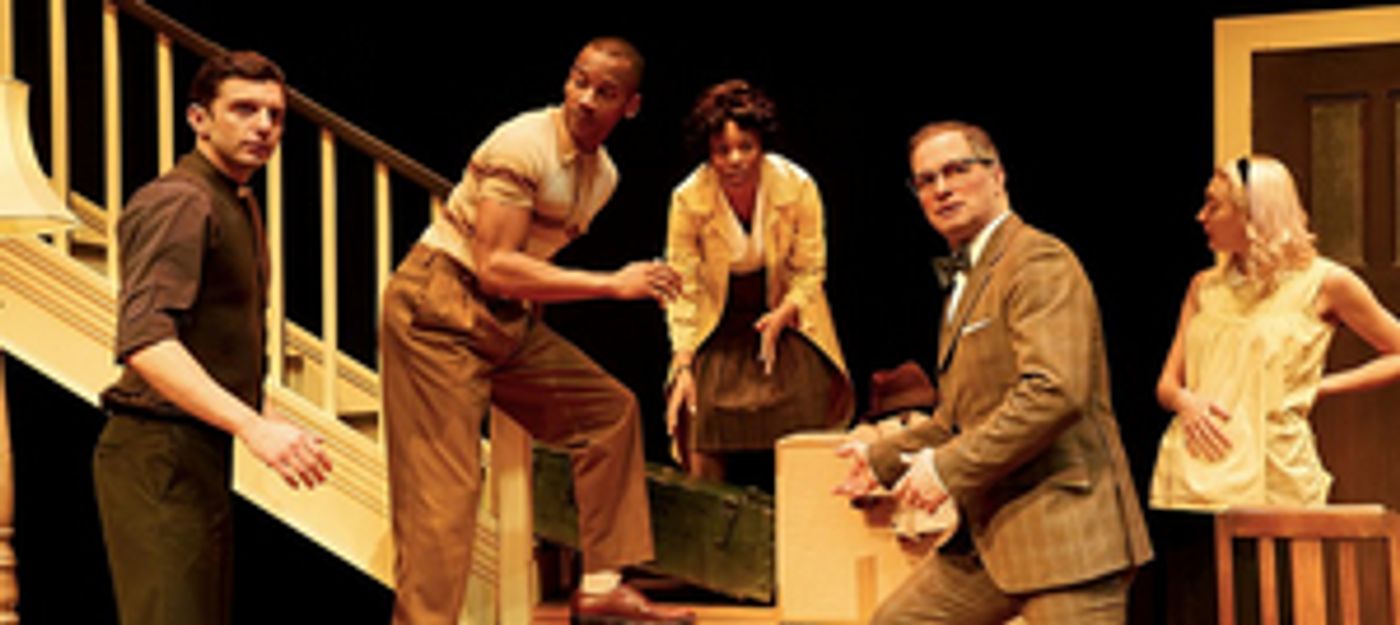Review: CLYBOURNE PARK, Park Theatre
Following sell-out runs at the Royal Court and in the West End, the award-winning play returns

![]() A revival of Bruce Norris's biting satire Clybourne Park still feels relevant today to questions of racial tension and gentrification.
A revival of Bruce Norris's biting satire Clybourne Park still feels relevant today to questions of racial tension and gentrification.
Written as a response to Lorraine Hansberry's 1959 play A Raisin in the Sun, Clybourne Park opens in 1959 and closes in 2009, during the Obama presidency.
First, we see a small house, lit and smoking from the chimney. A soldier approaches.
Russ (played by Richard Lintern) is a textbook example of a man in denial, while Bev (played by Imogen Stubbs) is more one-note, submissive, and naïve.
They are a couple surrounded by boxes as they head towards their moving day; they are selling up and moving on. We soon find the soldier was their son, and they continue to mourn his death.
The house has been sold to a Black family, and their friend Karl (played by Andrew Langtree), self-appointed community watchdog, doesn't like that one bit. Tensions spill over in a scene which is both darkly funny and deeply uncomfortable.
Act One is a difficult watch. It is hard to know whether you should laugh or feel totally repulsed by the attitudes on stage. Race is fair game, and so is disability. Karl's deaf wife Betsy (played by Katie Matsell) is excluded from the conversation for laughs.
Eyes are drawn to Francine, the house help (played by Aliyah Odoffin in her stage debut) and her husband Albert (Eric Underwood) in their discomfort, standing apart from the main ruckus. It is a moment delicately staged.
By Act Two the tables have turned, with the occupants of the now predominately Black neighbourhood objecting to a white family moving in and making architectural changes.
Cleverly, the main objector in Act One becomes half of the encroaching couple in Act Two (Langtree makes both cheerily obnoxious and clueless). Meanwhile Stubbs's 1950s housewife becomes a confident lawyer, and the vacuous vicar (played by Michael Fox) becomes a gay business whizz.
As the action in both acts mirror each other, references reappear (notably to skiing, which Karl asserts is not a Black pastime, but which the modern, wealthy Black couple enjoy on their trips to Switzerland). Ghosts of the past resurface, as do barbs which culminate in a vicious comment on white women.
Oliver Kaderbhai's production lets the acting take centre stage in this perceptive play - James Turner's set is dominated by a staircase and a doorway, period perfect for Act One, and in a state of renovation by Act Two. A final coda turns the soldier's tale full circle, with a moment of heartbreak - beautifully played by Stubbs, Fox, and Littern.
Clybourne Park at the Park Theatre until 23 April
Photo credit: Mark Douet
Reader Reviews
Powered by
|
Videos

